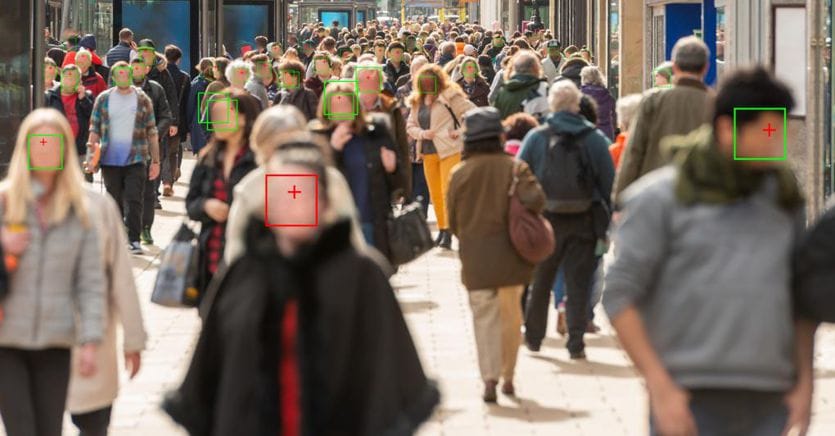Italy has banned facial recognition in public places, with some exceptions, and is the first country to do so. It does so with a Pd amendment to the Dl Capienze approved last night. The first signs of appreciation arrive from the Privacy Guarantor, even if some experts report that the exceptions leave too large (and vague) room for maneuver for surveillance.
What does the Dl
The ban is valid until the end of 2023 and then the European regulation on artificial intelligence should arrive, which among other things provides strong new limits to facial recognition. facial recognition operating through the use of biometric data referred to in Article 4, number 14), of the aforementioned Regulation (EU) 2016/679 in public places or places open to the public, by public authorities or private entities, are suspended until the entry into force of a legislative discipline on the matter and in any case no later than 31 December 2023 “. «Unless the fact constitutes a crime, the administrative pecuniary sanctions established by article 166, paragraph 1, of the code referred to in legislative decree 30 June 2003, n. 196, and by article 42, paragraph 1, of the legislative decree 18 May 2018, n. 51, based on the respective scope of application “.
An exception envisaged: the prohibition does not apply “to the processing (of personal data for biometric recognition, ed.) Carried out by the competent authorities for the purpose of preventing and repressing crimes or executing criminal sanctions pursuant to the legislative decree of 18 May 2018, n. 51, in the presence, except in the case of treatments carried out by the judicial authority in the exercise of the judicial functions as well as the judicial ones of the public prosecutor, of the favorable opinion of the Guarantor pursuant to article 24, paragraph 1, letter b), of the same legislative decree n. 51 of 2018. ”We are the first in Europe to make this moratorium, which has received proposals from Germany and the United Kingdom.
The reactions
“A historic step”, says Filippo Sensi (Pd), who had presented a law proposal on the subject, the letter of which became the Pd amendment to Capienze. “We have stopped the regulatory far west that allowed us to turn on a beacon on the privacy of each of us.” “Many municipalities have tried to install smart cameras in public places, a risk averted with mobilizations, campaigns and interventions by the privacy guarantor. Now there is a primary rule to prohibit it ».
Sensi is not worried about the exceptions, which are a “targeted intervention, and a positive opinion from the Guarantor is always expected for the installation. There are all the safeguards against abuse and arbitration. ”“ It is a first step, not the prohibition that would be desirable, ”he adds. “A step forward”, confirms Guido Scorza of the Privacy Guarantor Board to Sole 24 Ore. «In the face of certain risks, nothing will ever be enough but the principle is now clearer than before. The end does not justify the means and not everything that is technologically possible is also democratically sustainable. The exceptions to the ban confirm the rule, ”he says. Critics of the privacy network lawyers, who in a note sent to the Sole 24 Ore write that “it is clear that this is a fake victory. Facial recognition by public and private authorities in public places was banned until 2023, but paragraph 12 is without prejudice to the possibility of using these systems for the prevention and repression of crimes or for the execution of criminal sanctions. In addition to being the main area of use for these systems, it is also the most risky area for people. In fact it was better without this rule, when the regulatory vacuum allowed the Privacy Guarantor to block these activities, as in Como “.
